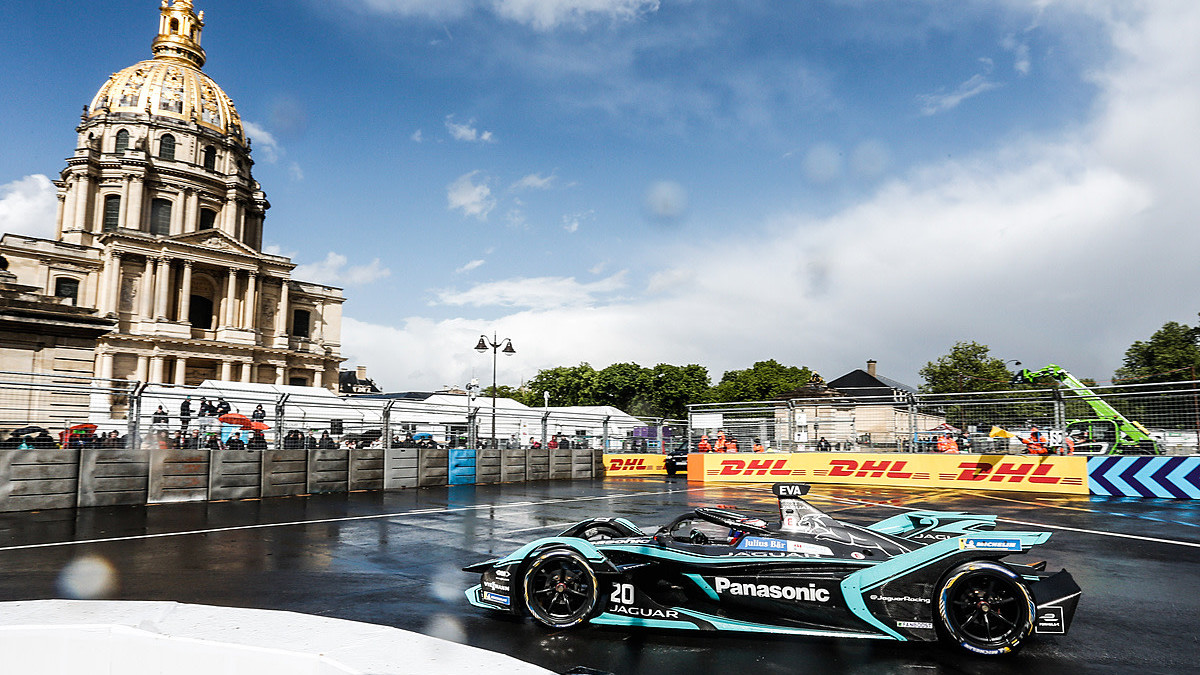Politician Is Mad About The 'Thundering Engines' Of The Formula E Race In Paris
If you listen closely, you might just hear it over the roar of the métro and the bustling weekend traffic. There it is again—the buzzing of a pack of restless bees, maybe, or the dying breath of a dog's favorite squeaky toy. That sound you hear is the "thundering engines" of the notoriously loud Formula E cars—the very ones that have French politician Benjamin Griveaux so riled up that he's promising to cancel the ePrix, if only Parisians will make him mayor.
It feels like just about anything can happen in the wild year that is 2019—including, apparently, Formula E races becoming talking points for political elections! What a time to be alive.
A possible serious contender in Paris' 2020 mayoral race is a man named Benjamin Griveaux. While yet to be nominated by his party La République En Marche, he's the former French Secretary of State and is thought to be favored by current French President Emmanuel Macron (who, coincidentally, founded LREM). And he is very much opposed to Formula E, as Motorsport.com notes:
"We poured 9,000 cubic metres of tarmac for just a few hours of racing. Tarmac that will be removed that very same day. This is an ecological aberration," he told BFM TV (although it should be noted that figure is actually 7,080 square metres, and, furthermore, that tarmac is fully recycled after the race and FE has also offered to fix potholes in the area).
The candidate has written a whole column on Medium, normally a platform for bloggers and not politicians, about his distaste for the event, citing the "thundering engines" as one of his main complaints—an odd choice of words, considering FE powertrains are... very quiet. At barely 80 decibels, they aren't even as loud as your garbage disposal. If anything, they sound like an inoffensive vacuum from the future, which is probably the least horrible thing you'd hear on a Parisian street on a Saturday.
Other arguments of his include that the road blockages are infuriating on a Saturday afternoon—something that French farmers do, like, daily; that the event is "elitist" in that it costs money to attend the race; that the fast cars will set a bad example Parisians, who are not allowed to go anywhere near as fast as FE cars on the same roads (I cannot disagree, I, too, would like to drive very fast); and that it's largely just a big disturbance to the people who live in the area. He concludes that the ePrix contributes "nothing that concretely improves the lives of Parisians."
I mean, Griveaux isn't wrong. The race doesn't give Parisians anything concrete, doesn't immediately make all of their lives better in some quantifiable way. But not everything in life needs to be utilitarian and practical! Sometimes we just need to have fun!
Griveaux promises to cancel the ePrix if he's elected in 2020, despite the fact that there's currently an agreement in place for FE to race in Paris until 2022.
Something similar happened with the Formula E double header race in Montreal, which served as the 2016-17 season finale. A significant area of the city was closed down, which prompted future mayor Valérie Plante to include altering the race as part of her campaign. Her offers to change the venue were denied by Formula E—so she shut down the event.
In contrast to Griveaux, however, Plante's problem with the race was that it cost millions of dollars to host—not that it was ecologically harmful or a nuisance to the neighbors.
FE's business model requires them to race in the city as a way to make relatively eco-friendly racing and climate change awareness accessible; it's pretty much guaranteed that they'll run into some stumbling blocks from local politicians along the way.
But FE has at least made an effort to give back to the communities that host the race. In the sustainability reports they publish for each season, the series details its commitment to local charities and to giving back to the community by locally sourcing food and labor. In certain cases, as mentioned in the Motorsport.com quote above, they offer to fill potholes or make other improvements to the area, as need be.
Many Griveaux's grievances are no doubt shared by locals. As someone who had to endure many SXSW festivals while living in Austin, I know how obnoxious it can be to have everything become infinitely more complicated because of a large event.
It'll be interesting to see if FE becomes a larger talking point in the Parisian mayoral election—one that's focusing largely on tackling ecological initiatives in the city.
